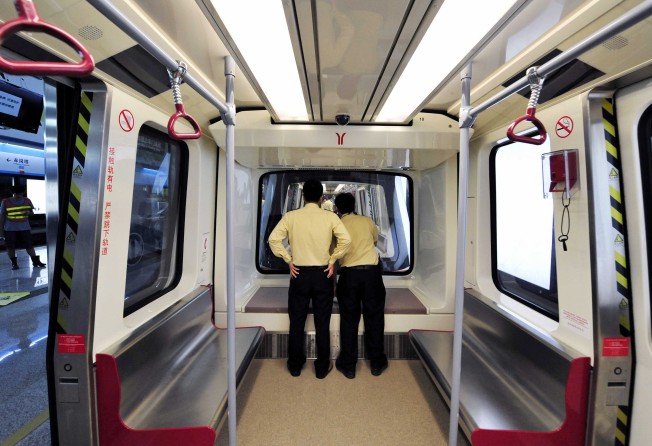If Taiwan is Hong Kong’s past, Guangzhou is our future
- The mainland city impresses with its buzzing centre, clean streetside air and a people full of optimism and drive. More than Taiwan, which in many ways has stood still in time, Guangzhou should be the growth model for Hong Kong

Back-to-back trips I recently made to Guangzhou and Taiwan from Hong Kong were like taking a crystal ball and gazing into the future. There are those in this city who look to one or the other as the way forward and such people are often labelled as either patriotic or pro-democracy. But if it’s growth and development we’re talking about, love of the nation and politics shouldn’t come into play. Even from a few days of exposure to each, it’s obvious that the mainland is the sensible direction.
I had not been to either for years. Both had obviously moved forward, but the pace of development was markedly different. Guangzhou was bustling and vibrant, its Tianhe business and commercial district literally streets ahead of anything Hong Kong has to offer. Taiwan was, as all my previous trips have seemed, like stepping into the past; Taipei and Taichung were like looking into a mirror of Hong Kong a decade or more ago.
You can’t help but be impressed by Tianhe’s scale, its footpaths as wide as a square, shopping malls bigger and offering more choice than Hong Kong’s, office towers seemingly so close, but long walks away. The streetside air is noticeably cleaner as well; at the time of writing, mid-afternoon on a weekday, the reading for PM2.5 microscopic particulate matter in Tianhe is 21, considered good, and in Hong Kong’s Central business district, 65, which is moderate (for reference, in Taipei, it’s 55; Shanghai, 87; and Tokyo, 80).
There’s good reason for that. Most of the buses and cars on Guangzhou’s roads are electric, the result of a dedicated policy on the mainland to eradicate pollution and meet climate change goals, while Hong Kong’s government seemingly has little resolve to make roadside air more healthy by encouraging or forcing vehicle owners to switch from petrol and diesel.
The pace of life is noticeably slower in Taiwanese cities than Hong Kong or Guangzhou. There’s no rush about business transactions or service in restaurants and definitely no pushing and shoving on the subway, as happens in Guangzhou. But the streets are generally unpleasant, the noise from scooters is deafening and fumes from their exhausts and those from antiquated public buses, choking. Footpaths are a nightmare for the unfamiliar, often being uneven, narrowed with vendors and hawkers, and, due to parking shortages, blocked by vehicles.
But it is the mindsets of citizens that determines progress and on that score, Guangzhou is the most optimistic, forward-looking and positive. To my mind, Hong Kong since its return to Chinese rule has largely stagnated, major infrastructure projects aside, authorities being reticent to upturn policies for fear of a misstep and criticism.
Coupled with the fixation of some citizens to ensuring the “one country, two systems” idea has a literal meaning – that, what stood as of July 1, 1997, remains absolutely unchanged for half a century – there’s bound to be a sense of the city crawling forward rather than sprinting. The Symphony of Lights laser show for tourists on the Tsim Sha Tsui waterfront would seem a metaphor for what’s wrong: it was cool when it began in 2004, but it’s now seriously lame and in need of a revamp.
Nor should we be embracing Taiwanese thinking, which is largely insular. The island’s people seem oblivious to a world beyond their shores and the mainland is seen more as a threat than an opportunity. A forecast annual GDP growth rate of 2.27 per cent in 2019 is a result, compared to Guangzhou’s 6-6.5 per cent and the government prediction for Hong Kong of between 2 and 3 per cent.
Our vision decides our future and that requires energy, drive and will to improve. My observation is that it’s lacking in Hong Kong and dormant in Taiwan, yet in full thrust across the border, particularly in Guangzhou. If we need inspiration on which direction to take, it’s plainly on show, a mere 110km northwest of Hong Kong.
Peter Kammerer is a senior writer at the Post